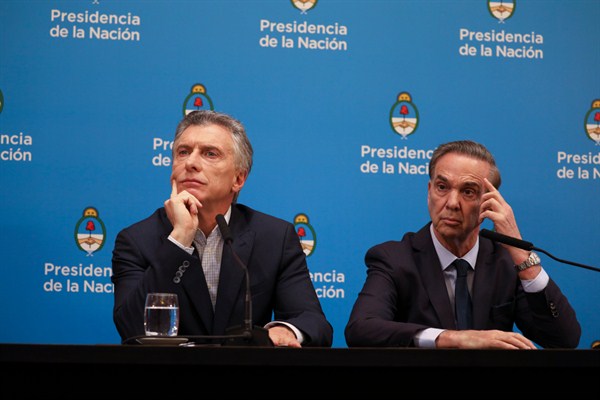Rarely has the world seen a single-day market crash like the one in Argentina this week. Investors stampeded for the exits Monday, devastating markets for Argentina’s stocks, bonds and currency, following the outcome of a primary election that strongly suggested President Mauricio Macri will lose his reelection bid. At one point, Argentina’s Merval index had dropped a staggering 48 percent, the second-biggest single-day loss anywhere in the past 70 years. When the day was over, the Merval had lost more than a third of its value, bonds had fallen 20 percent and the peso had crashed to new record lows.
Investors are fleeing because they are convinced that a victory by Macri’s challengers, Alberto Fernandez and his running-mate, former President Cristina Fernandez de Kirchner, will spell disaster for Argentina’s economy. One might expect investors’ full-throated rejection of the Fernandez-Fernandez ticket to nudge voters to support Macri in the October election. But not now, not in Argentina. Macri has been crippled by a paradox: The more investors fear the Fernandezes, the worse the economy gets. And the worse the economy gets, the worse Macri’s chances of winning reelection.
Macri became president in 2015, vowing to rebuild an economy that his predecessor, Fernandez de Kirchner, had left in shambles. Through her populist and interventionist economic policies, from mandating price controls and limiting exports to expanding enormous government subsidies, she had torpedoed economic growth, triggering an inflationary spiral and a massive budget deficit that accounted for more than 7 percent of GDP when Macri took office. If all that wasn’t bad enough, Fernandez’s government also manipulated economic statistics to try and hide the extent of inflation.

